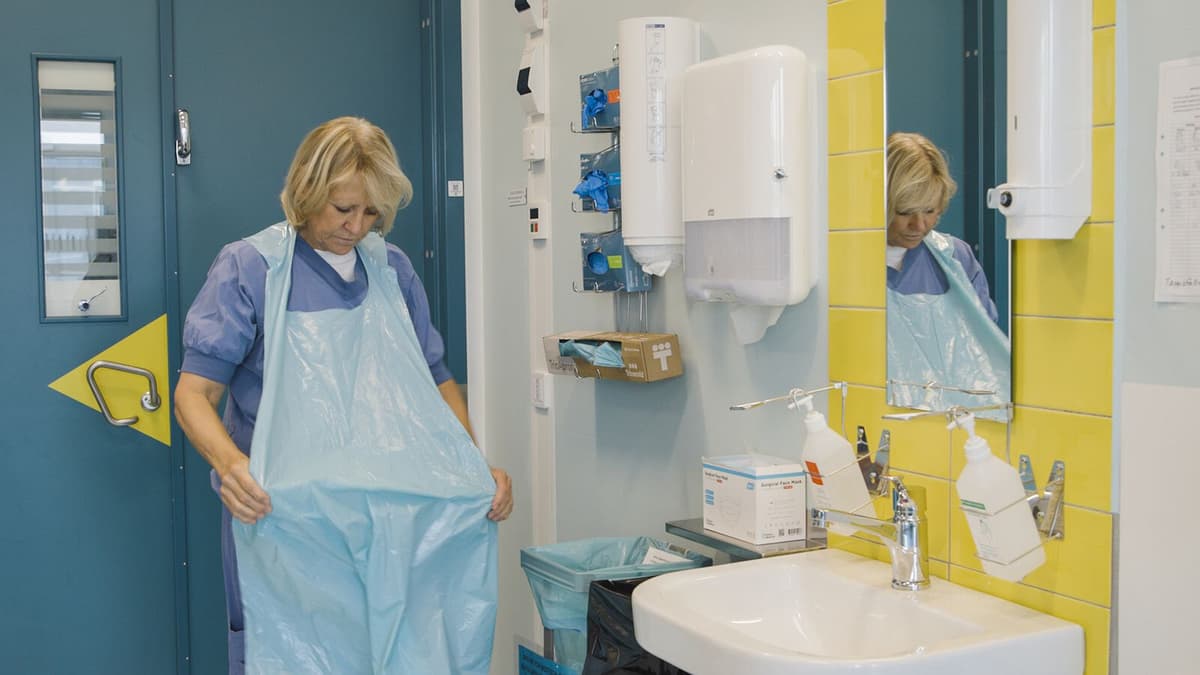In the spring of 2020, Johanna Albert, an intensive care physician at Danderyd Hospital, was one of those who searched for suppliers of consumable items. The pandemic had put many ordinary functions out of play and she was part of a group that worked on finding new solutions.
The disposable aprons made of plastic were suddenly in short supply. They are crucial in healthcare. They protect the staff's work clothes and prevent the spread of infections. They are changed often, thrown away and incinerated.
Asked the question
One of the many companies that offered to produce aprons for the region was Trioworld. Johanna Albert, who had thought a lot about the environmental impact of hospitals, asked if they could be recycled and got a yes.
Healthcare accounts for 5 percent of the climate impact in the Western world and disposable plastic items are one of the largest producers of all carbon dioxide, she says.
The company has since then delivered plastic aprons that are thrown away in special trash bags, transported to a facility in Småland, washed, chopped and melted to become new aprons.
Johanna Albert realized that for it to be successful, it had to be easy to sort the clothes. The trash bags where they are thrown away are green - the same color as the aprons. The staff have also been involved in designing them.
They are easy to put over your head without the neckline being too big, they are softer and have less static electricity than our previous ones, she says.
On the way to stop
After the pandemic, when the global supply chains got going again, the project was about to come to an end. But after persistent work by not least Johanna Albert and the company, Region Stockholm decided in the spring that the circular aprons should be procured centrally to all the region's emergency hospitals.
In addition to reduced climate impact, the production means better preparedness.
In times of crisis and war, we are significantly better equipped to provide healthcare with protective equipment, says Andreas Malmberg, CEO of Trioworld.
The hope is that more regions will follow.
We have also had visitors from both Japan and Austria who are curious, says Johanna Albert.
Petra Hedbom/TT
Facts: Disposable aprons in healthcare
TT
In total, the emergency hospitals in Region Stockholm consume around 11.5 million protective aprons per year.
According to the Swedish Association of Local Authorities and Regions (SKR), a circular flow can reduce the climate impact by about 66 percent compared to using protective aprons made of new fossil raw material that is incinerated.
During the spring, Region Stockholm has made the decision that the circular aprons should be procured centrally to all the region's emergency hospitals.






